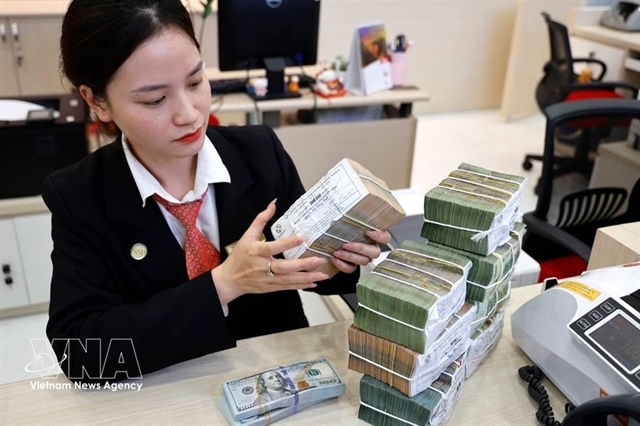SBV head calls for sustainable capital market
SBV head calls for sustainable capital market
Viet Nam must develop its capital market to avoid the current dependence of long-term investment capital on the banking system, State Bank of Viet Nam Governor NguyenVan Binh has suggested.

Binh told online newspaper Vneconomy that the nature of banking activities is primarily to provide short-term capital and services. The capital market, or the securities market, must therefore take responsibility for providing long-term capital.
However, both short-term and long-term investment capital currently stems from the banking system.
An economy that needs investment for development must look to the capital market, and not just depend on the banking system for fulfilling capital needs. A long-term dependence on the banking system will distort short-term and long-term capital market functions in the banking system, Binh warned.
He pointed out that the structure of the financial system rests on three main pillars: the currency, capital and insurance markets. But Vietnam only has the currency and stock markets, while the role of the insurance market is still quite ambiguous.
Binh further stated that it is difficult to avoid such shortcomings as Vietnam had to switch from a subsidy mechanism to a market mechanism over a long period of time. One of the main shortcomings of this was the expansion of the banking industry, though the fact is that the stock and insurance markets still exist. If the of the banking market is too big, it will fully dominate the financial market, causing the securities market to remain feeble.
The SBV Governor also noted that in terms of asset , the banking market accounts for 80 per cent, and the securities and insurance markets account for the remainder.
Particularly, the stock market has failed to develop sustainably despite being launched a decade ago.
Binh noted that frankly, the practice of bank credit financing both enterprises and securities investors should be terminated immediately.
To boost the securities market, Binh said, firms must observe ‘fiscal discipline,' transparency, disclosure and meet required financial criteria if they want to list in the securities market.
Management agencies for the securities and banking industries should also assume the responsibility of implementing ‘fiscal discipline,' Binh said.
To do this, management agencies need to have ample information about firms before deciding whether they are authorised to list on the stock market. The agencies also need to make public their rating for each firm to help investors take their decision.
For example, X firm is rated AAA, while Y firm is rated AA because of its inferior business performance. This information is very important for investors, and it is a prerequisite for establishing a sustainable market.
Binh said the Government needs to follow this; even it takes a decade to do it, as there is almost no other information or data source that is considered a more reliable reference for investors to help them take their trading decisions.
If this is done, shares of enterprises, including both listed and those about to make initial public offerings, will attract demand in a sustainable way.
At the same time, firms themselves can actively solicit funding for long-term investment and expansion plans, instead of depending only on bank loans as is the case at present, resulting in an imbalance in the capital and the currency markets.



























